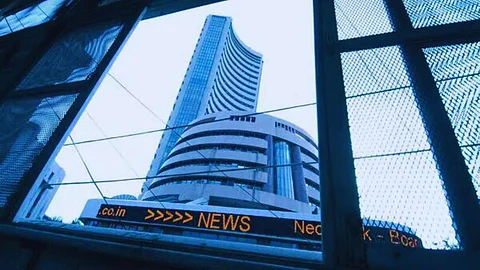

Indian stock markets are witnessing a significant shift, with domestic investors increasingly taking the lead. A PRIME Database report revealed that domestic investors' share in the market hit a record high of 25.85% in June. At the same time foreign portfolio investors (FPIs) saw their holdings dip to a 12-year low.
“Indian markets are rapidly moving towards Atmanirbharta [self-reliance] with the share of DIIs [Domestic Institutional Investors] set to overtake that of FIIs in the next few quarters. For years, FIIs [Foreign Institutional Investors] have been the largest non promoter shareholder category in the Indian market with their investment decisions having a huge bearing on the overall direction of the market. This is no longer the case,” said Pranav Haldea, Managing Director, PRIME Database Group, dedicated to the primary capital market.
DIIs along with retail investors (individuals with up to ₹2 lakh shareholding in a company) and High Net Worth Individuals (HNIs - individuals with more than ₹2 lakh shareholding in a company) have now been playing a strong counter balancing role, he noted.
The share of DIIs as a whole increased to 16.23% from 16.07% during the quarter. On the contrary, Foreign Institutional Investors (FIIs) pulled out Rs 7,693 crore from the Indian stock market during the quarter ended June 2024. This led to a decline in their share to a 12 year low of 17.38% from 17.72% in the March quarter.
The gap between FII and DII holding narrowed to its lowest ever level with DII holding now being just 6.60% lower than FII holding. The FII to DII ownership ratio also decreased to an all-time low of 1.07 at the end of June 2024 quarter from an all-time high of 1.99 in the quarter ending March 31, 2015.
The share of domestic Mutual Funds (MFs) in NSE-listed companies rose an all-time high of 9.17% as on June 30, 2024, from 8.93% as on March 31, 2024, led by strong net inflows of ₹1.09 lakh crore during the quarter, as per the report by PRIME Database.
The share of retail investors reached an all-time high of 7.64% as on June 30 from 7.52% on March 31, while the share of HNI investors decreased slightly to 1.98% from 2.00%, QoQ. As such, the combined retail and HNI share increased to 9.62% from 9.52%, the data from PRIME Database showed.
Meanwhile, Life Insurance Corporation of India (LIC), India’s largest institutional investor saw its share (across 282 companies where its holding is more than 1%) decreasing to an all-time low of 3.64% in Q1FY25 from 3.75% in the previous quarter.
“This was despite net buying by LIC of Rs 12,400 crore during the quarter. Given that LIC commands a lion’s share of investments in equities by insurance companies (at least 70% share or Rs 15.72 lakh crore), the overall share of Insurance companies also went down from 5.40% to 5.23% during the quarter, Haldea added.
The Indian government’s stake as promoter increased to a 7-year high of 10.64% as on June 30 on the back of strong performance of several PSUs. Contrary, the share of private promoters declined to a 5-year low of 40.88%.
“Stake sales by promoters to take advantage of bullish markets, relatively lower promoter holding in some of the IPO companies and also overall institutionalization of the market has resulted in this,” said Haldea.
Disclaimer: The views and recommendations made above are those of individual analysts or broking companies, and not of dhanamonline.com. We advise investors to check with certified experts before making any investment decisions.
(By arrangement with livemint.com)